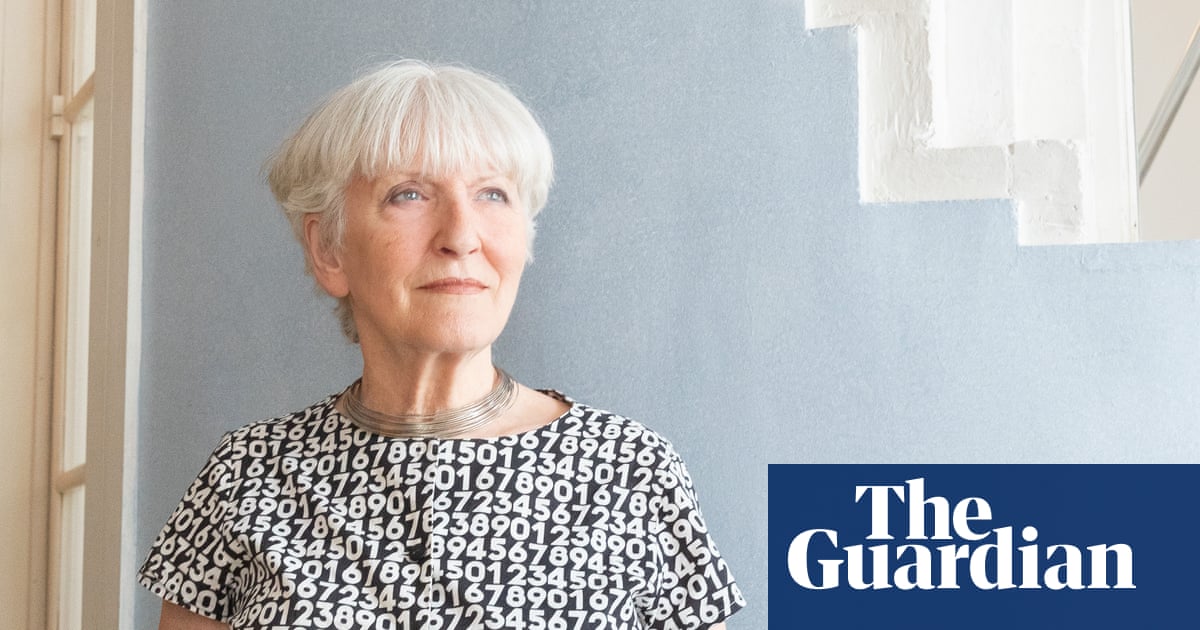
Most people approaching their 90th birthday would be forgiven for deciding that, whatever their work, enough was enough and it was time to relax.
Most people, however, are not Edna O’Brien. Ireland’s greatest living writer has over the past week delivered this year’s TS Eliot lecture on Eliot and James Joyce for Dublin’s Abbey Theatre – Covid-19 meant that it was recorded at the Irish Embassy in London and will be broadcast on her birthday – and won the South Bank Sky Arts award for literature for her recent novel, Girl, a harrowing, heartbreaking tale about the girls kidnapped in Nigeria by Boko Haram. On Tuesday she celebrates her birthday.
It will, she says, be a relatively quiet affair. “I’m going to see my agent and my son Sasha, and there will be one other person – I hope that’s allowed. My other son, Carlo, lives in Enniskillen [in Northern Ireland] so he can’t come.”
There is something magical about being in O’Brien’s company. It’s not simply that at almost 90 she remains a bewitching presence, tiny, beautifully dressed in black jacket and skirt with an intricate silver necklace, her red hair perfectly styled. Her house itself, a narrow terrace in London’s Chelsea which she rents, has an aura about it from the cosy downstairs kitchen to the book-stacked shelves of her office – “The books are taking over,” she laughs at one point. “They’re everywhere…”
On the table sits a striking vase of red and yellow roses which seem to slowly unfurl as the afternoon light gets dimmer and shadows play across the curtains, adding to the sense that this is a special place where anything could and might happen.
The overall effect is both warm and enchanting, much like O’Brien herself. She admits she has been unwell and feeling tired of late but willingly throws herself into every question, giving considered answers and refusing to hold back.
The Eliot speech was “great and gruelling”, she says. “I’m not used to giving lectures and I did worry about it. I wanted to give a sense of the poetry, the person, the mystic and the sometimes quite cruel man without making it into a gossip piece. It was supposed to be 15 minutes but it came in at 150 minutes. I’m glad I did it but it took an awful lot out of me.”
Girl, of which she remains “very, very proud”, was similarly tiring. “I went to Nigeria twice – that was no fun and games. What was terrifying was to try and make a kind of mythic story from all this pain and horror. I spoke to a lot of people – escaped girls, their mothers and sisters, to trauma specialists, doctors and Unicef but then I had to honour the material and the feelings of those girls and their relatives while making it not a fable – there are no lies – but a kind of little myth and some people didn’t understand.”
She was especially disappointed by reaction in the US, where she has always been held in high esteem. “In France I got an award for it, in Germany they loved it and there were lovely quotes on the paperback edition here, but in the States they said they were waiting for the real thing, meaning someone else’s book.” She shakes her head. “They wanted something but they didn’t seem to know what they wanted.”
A particularly mean-spirited profile in the New Yorker went further. “He said that I loved horror and that when I was speaking of the horror of the camps in Nigeria he wrote that my eyes widened with interest. I’m not that stupid and I’m not that silly. I don’t love horror. I fear it and I felt for those girls. To insult me and to insult what I had written and my reasons for writing it was a very heinous thing to do. The whole tone was hurtful and filled with things that were just beyond credence.”
If O’Brien sounds weary it is because she has been here before, many, many times. Her first novel, The Country Girls, written in just three weeks in 1958 and published in 1960, saw her widely condemned in her native Ireland and, worse, damaged her relationship with her mother. “She was very ashamed of my books and made more ashamed by people in the village, and that barrier was always there.”
Her fourth novel, the shimmering August is a Wicked Month, which detailed an unhappily married woman’s sensual awakening on the French Riviera, saw her receive “an absolute scorching” in the press and was banned in Ireland, while she was “savaged” for 2002’s In The Forest, which fictionalised a notorious Irish murder and which saw her described by Fintan O’Toole in the Irish Times as “morally criminal”.
It didn’t help that she was portrayed in the press as a party girl, her house an endless social whirlwind, her time spent with some of the world’s most glamorous men, from Marlon Brando to Robert Mitchum. “That was really about how they perceived my life more than the way I lived it,” she says, noting that at most of the parties she was “doing the cooking”. “When Vanity Fair called me the ‘Playgirl of the Western World’ it wasn’t badly intended but if it had been true then I wouldn’t have raised two children and written 28 books and plays and other things.”
These days she has been embraced by a more modern, less shame-filled Ireland, with many acknowledging that the country is catching up to her way of thinking. “President Michael D Higgins, a marvellous sincere person, spoke of the intentional malice that had been meted out to me and why. My books are not hateful of Ireland [but] I was told by [Irish author] Rosita Sweetman that what offends people is my honesty. I have always tried to be truthful in everything I write. What I was hurt about was when attacks were about me rather than about what people were reading.”
It’s here that I have to admit that over a decade ago, as a young and callow critic convinced that you should never let even the writers you most adore off the hook, I wrote a very ungenerous review of O’Brien’s 2006 novel The Light of Evening in the Observer. It was a “deeply hurtful” piece, O’Brien tells me, while accepting my apology and admitting she considers the book “a dud”.
“I got myself into a quagmire with The Light of Evening because it was two different books and I wrote it about my mother, whom I had a certain ambiguity towards. It was written shortly after she died and I felt guilt and relief and confusion within myself, and perhaps that meant that I wasn’t fully in charge of the material.”
She smiles and any residual tension drains away. “Besides there is no point in glossing over something and pretending I haven’t made mistakes – I’ve reviewed about three books in my life and I got into trouble with all three of them.”
Where many writers retreat into themselves as they age, O’Brien has instead embraced risk, something she attributes to her short-story writing, in particular a story about an Irish workman, which saw her conduct interviews across north London pubs. “It changed the way I wrote – everything I’ve written since then I’ve researched intensely,” she says. “I would hope that the pulse of my writing is about feeling, about going inside it and bringing it back out. The authors I love [who include everyone from Russian master Anton Chekhov to experimental Scottish writer David Keenan], they do it too. I do think one has to keep learning and it does get harder because you are harder on yourself. You don’t want to repeat yourself – it has to be fresh.”
Looking back, does any particular book stand out? “When I finished The Country Girls 60 odd years ago I felt such an amazement it was done,” she says. “It’s quite a funny book and yet I cried all the time I was writing it, so it just shows what a hypocrite one can be. But I’d actually written a book whereas before that I’d only ever written a little mushy piece about skies, so it has a very strong place in my heart as the stepping stone that got me away.”
What about regrets? “I do regret that I had to begin to cut myself off from people more, even pre-Covid, as there was only so much energy in the pot. And sometimes I have been too hasty in my judgment of people. I also wish I’d been more sensible about money – I think that’s in my genes, my father’s family were very reckless.”
There’s a pause. “I did not have that brilliant a life in many ways. It was quite difficult and that’s not said in self-pity but one thing that is true is that language and the mystery of language and the miracle of language has, as that lovely song Carrickfergus says, carried me over… the richness of great language.”
There is still the hope too of one final book: “I do have one in mind but I’m not sure I have the energy or the existence to carry me through,” she says with a hint of regret. “I don’t know if I’ll manage it but I do know that I have always written with truth and feeling. I have not abandoned those qualities ever, and I never will.”












